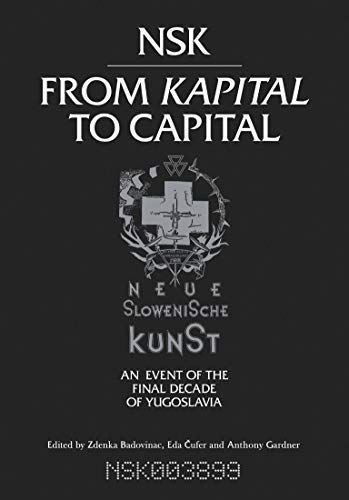
NSK from Kapital to Capital Neue Slowenische Kunst, an Event of the Final Decade of Yugoslavia
"This book is the generously illustrated, lavishly documented, critically narrated story of one of the most significant art collectives of the late 20th century. In 1984, three groups of artists in post-Tito Yugoslavia - the music and multimedia group Laibach, the visual arts group IRWIN, and the theatre group Scipion Nasice Sisters Theatre - came together to form the Neue Slowenische Kunst (NSK) art collective. Adopting the symbols, codes, appearances and discourses of facism, nationalism, state power, socialist realist and avant-garde art, and pushing the strategies of over-identification and subversive affirmation to their limit, NSK exposed the common foundations of various regimes, systems, and ideologies, while affirming that "art and totalitarianism are not mutually exclusive." Employing music, video, film, exhibitions, writing, graphic design, architecture, theatre, and public relations to probe the aesthetic possibilities of declining socialism and proliferating capitalism, NSK introduced an idiosyncratic version of postmodernism (the retro-avant-garde) into the globalizing cultural sphere."--Back cover.